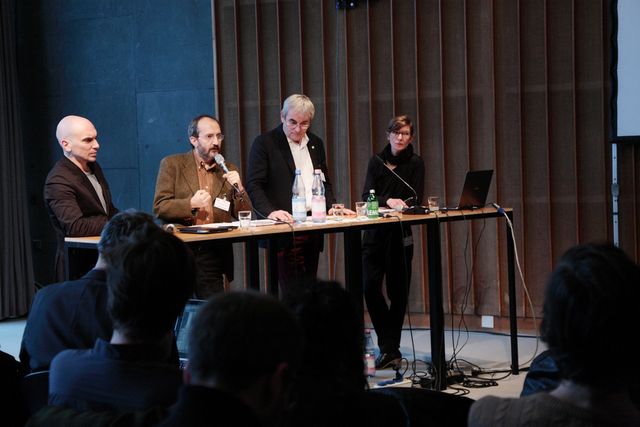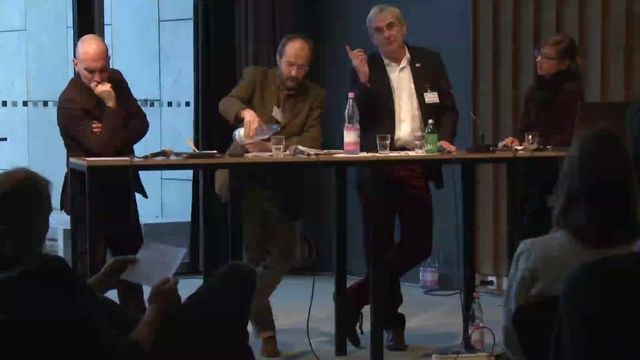Agency

Statements by Matteo Pasquinelli (philosopher, Berlin), Marco Armiero (Environmental Humanities Laboratory, KTH Royal Institute of Technology, Stockholm), Herbert Lohner (Friends of the Earth, Berlin). Discussion moderated by Cordula Hamschmidt.´
The “Age of Man” raises central questions for philosophy and jurisprudence: who or what has or holds agency in the Anthropocene? How is agency wielded, enacted, employed? What party lays claim to advocacy – as representative claim or from a position of defense? When non-human entities – such as carbon dioxide, stock exchanges, or planetary technics – are powerful enough to restructure not only societies, but also to effect human law, an appropriate modification of how intercession is conceived seems expedient. With such grave consequences posed by actions and agents within the state of transition the Earth system is undergoing, there no longer re-mains a point in arguing between intentionality or unintentionality. The knowledge we have on hand makes clear: nothing can be called unintentional anymore.
Appeals for a “natural contract” as a necessary update to the social contract of the Moderns, or calls for a convocation of a “parliament of things” are commonplace within the humanities. Yet despite these conceptual propositions, urgent questions remain: who or what counts as a subject? Who and what constitute a political body? Who speaks for whom? How can a philosophy of agency reimagine not only the register of the subject, but the ethical entanglements of activity? How can jurisprudence adapt its codes, forms, and procedures to reflect the multi-agential realities of the Anthropocene? How can representation beyond-the-human be comprehended, if to be enacted?

